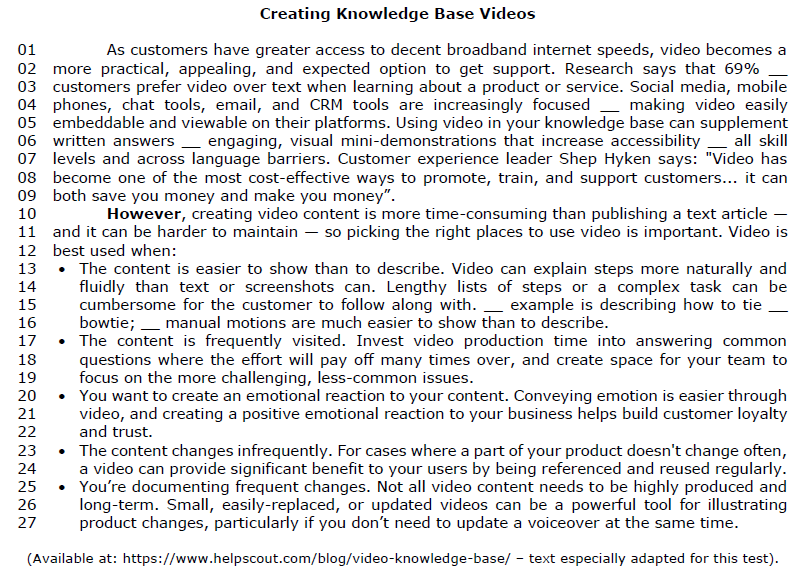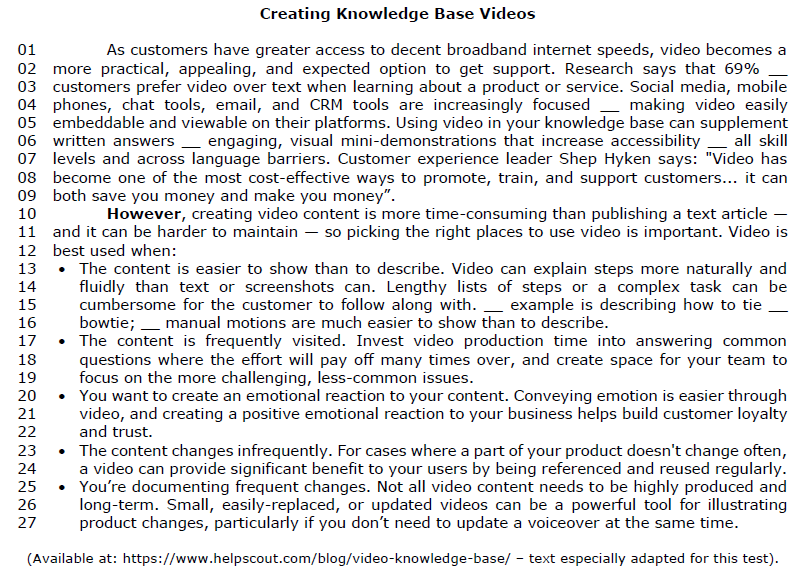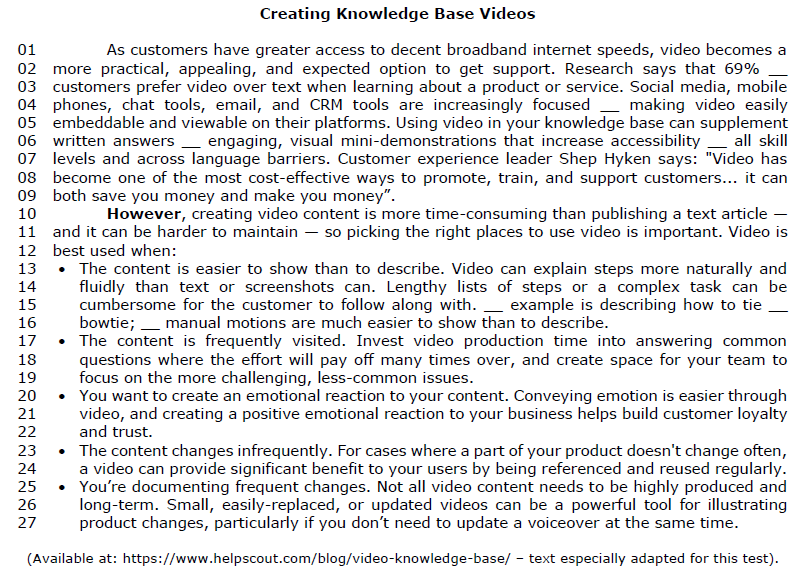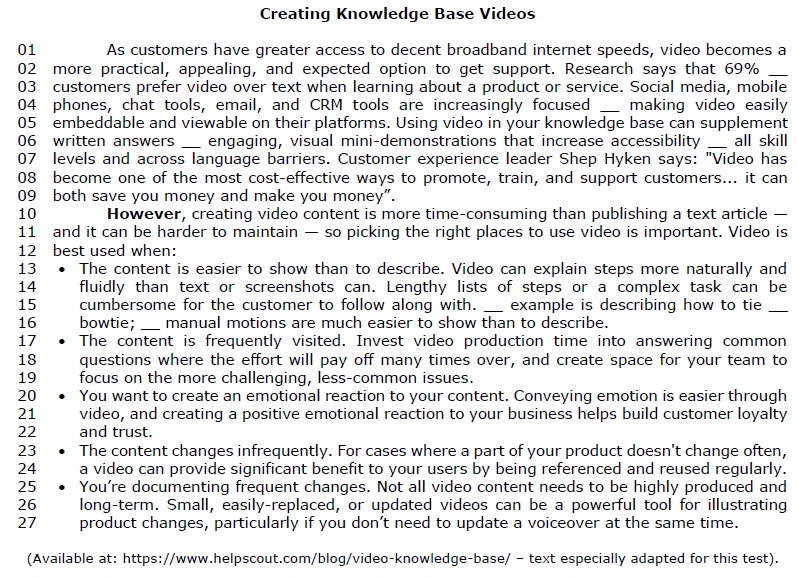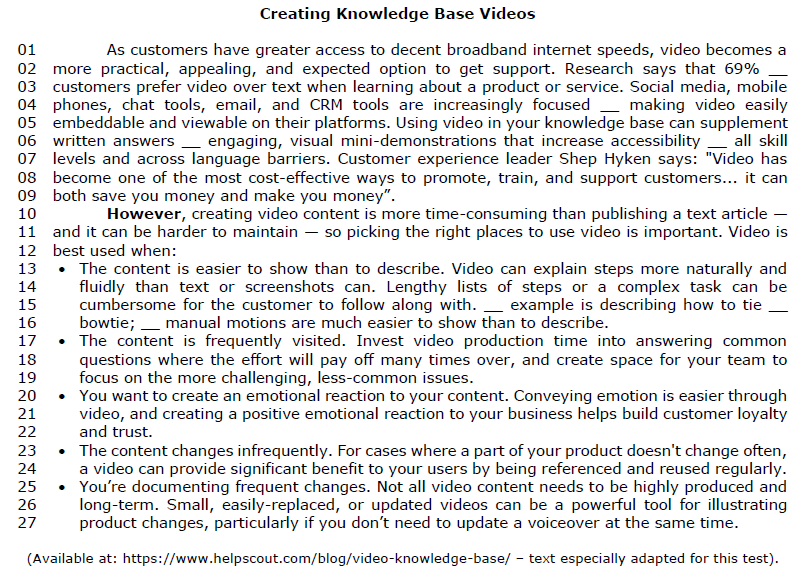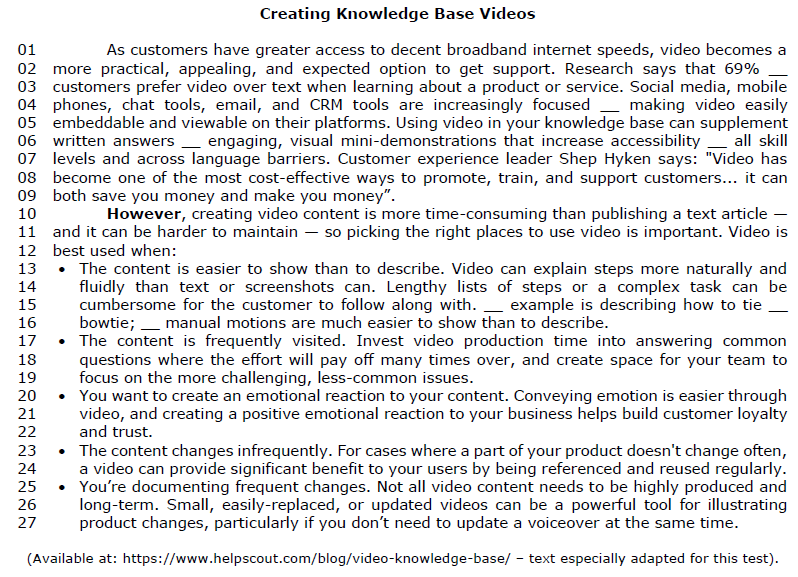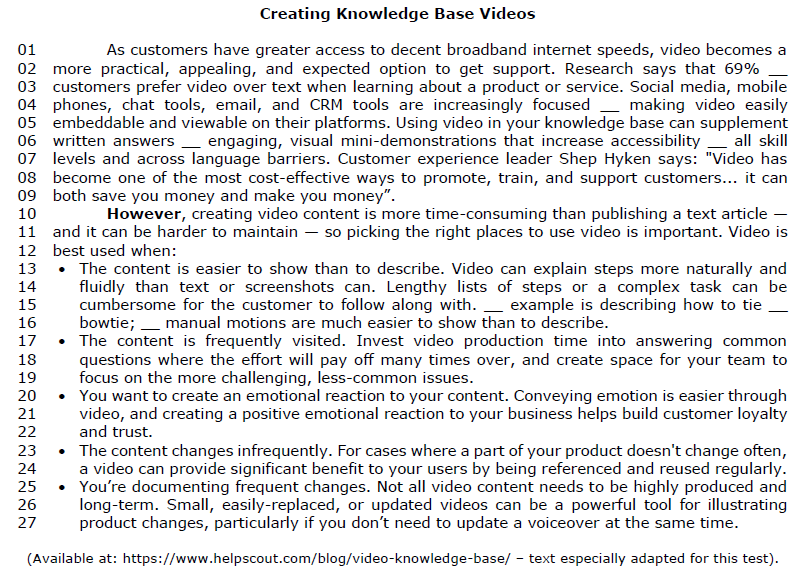Consider the following statements about the word “can” in the sentence “Video can explain steps more naturally” (l. 13) in the context presented in the article:
I. Its past form is “could”.
II. It could be replaced by “must” with no significative changes in meaning.
III. It expresses permission.
Which statements are correct?
The options below could replace the bold word “however” (l. 10) with no significative changes in meaning, EXCEPT for:
Consider the following excerpt from the text:
“As customers have greater access to decent broadband internet speeds, video becomes a more practical, appealing, and expected option to get support” (l. 01-02).
The underlined words represent comparative structures. Mark the option below that shows the correct superlative forms of these adjectives, in the order they are presented in the text:
In the sentence “Video has become one of the most cost-effective ways to promote (…)”, the underline structure is in the present perfect tense. This means the action:
Mark the alternative that best completes the blanks in lines 02, 03 and 06 (both occurrences) in order.
Mark the alternative that best completes the blanks in lines 15 and 16 (both occurrences) in order.

